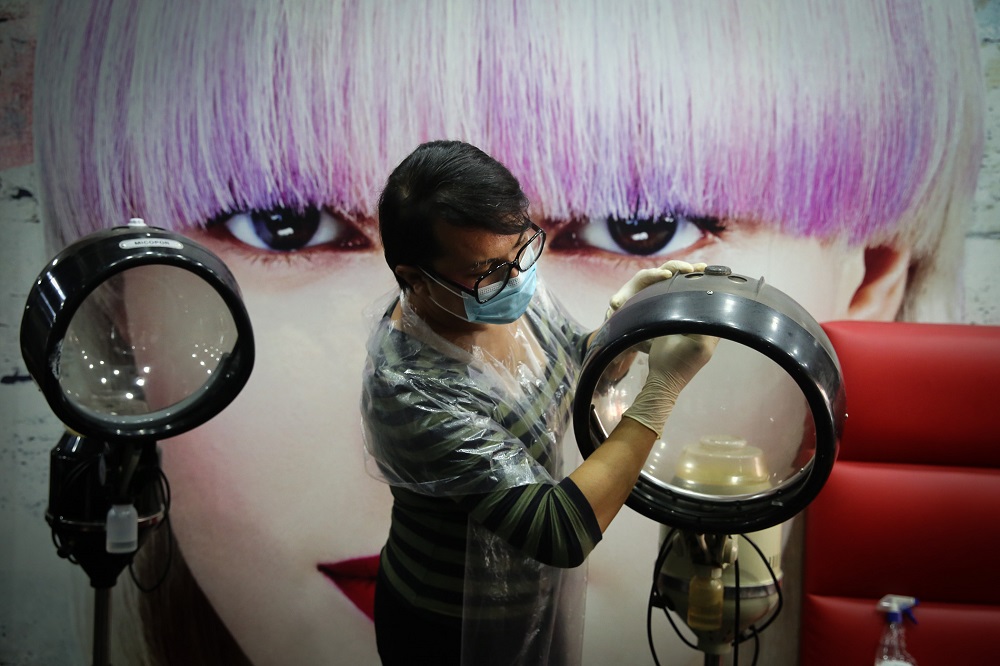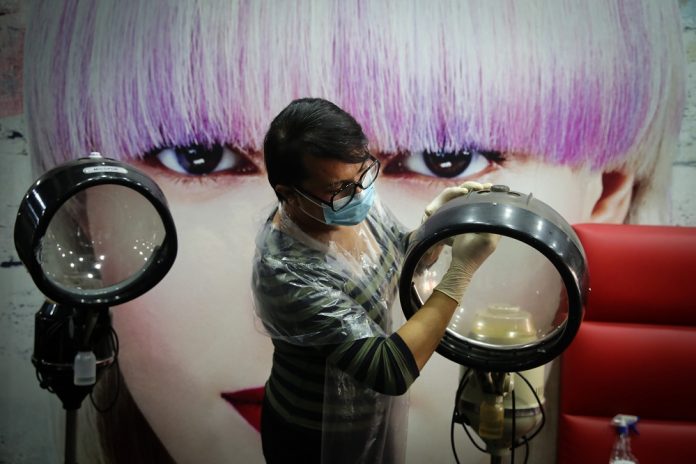
KUALA LUMPUR, Feb 9 — Steve Foo was relieved when the government allowed hair salons to reopen for business from February 5 as he was looking to earn income again in the short week before the Chinese New Year holidays.
His phone that had been silent for nearly a month started buzzing with calls and messages from his regular customers again. But the Penang-based hairstylist’s delight soon turned to dismay.
The majority wanted their hair coloured or glammed up rather than mere haircuts, which were all Foo and other hairdressers like him are allowed to do under the current government standard operating procedures since the movement control order (MCO) was reintroduced on January 13.
“With the SOPs only allowing us to offer haircuts, I had to turn away all my customers who called up to make an appointment for hair treatments,” Foo told Malay Mail when contacted.
In Penang, hair salons typically charge RM30 for a basic haircut, depending on the hair length. The real money makers came from hair treatments; colouring hair could easily earn hair salons RM200 and above per person, depending on the complexity requested.
In many cultures, not least among the Chinese, transforming the hair is a way to signify a fresh start in life, which is why not just haircuts but curling, straightening, and colouring them are so popular ahead of festivals and celebrations.
Connie Thong who owns Sakura Unisex Hair and Beauty Centre in Ulu Kelang, Selangor, said she would usually be inundated with bookings for hair treatments in the days leading up to Chinese New Year.
With the current limitations, she said it would be impossible for hair salon owners to survive solely on haircut services.
“Not everyone needs a haircut and a lot of my customers were hoping that they can do hair and scalp treatments.
“None of these can be done and that really impacts our income as hairdressers,” Thong said.
Saadiah Sahahdi, a hairdresser based in the Kuala Lumpur city centre, said the government’s changing policies have also contributed to slow business at hair salons.
She said some of her regular customers were not aware that hair salons are now allowed to open for business, and those who were wanted treatment rather than haircuts — affirming what Foo and Thong both said.
“The hairdressing businesses will definitely be affected severely if they limit our services to only haircuts.
“When I could accept customers who came in for other hair treatments, the business was definitely better,” said Saadiah who has been working as a hairdresser for 38 years.
Of several other hairdressers contacted by Malay Mail, only one said her hair salon has been fully booked out since reopening last week.
“Since we opened, we’ve been receiving calls non-stop since asking if we are open for haircut services.
“We’ve had customers coming from the morning and we have bookings until closing time,” said the hairdresser who works at a salon in Ampang, asking not to be named.
She was glad to be working again even if it was only cutting hair, saying her family depended on the wages she brings home.
However, she was sympathetic to customers who were unable to get the type of services they wanted despite hair salons being allowed to operate again.
“I think people just miss pampering and treating themselves.
“Coming to a hair salon to some is therapy, especially now when everyone is stuck at home. It is a big relief to them that salons can open again,” she said.
Senior Minister (Security Cluster) Datuk Seri Ismail Sabri Yaakob had announced on February 4 that hair salons and barber shops were among several previously closed businesses that were allowed to reopen from February 5 and operate until 10pm daily.
However, he said the National Security Council, which decides on policies during the Covid-19 pandemic, has imposed certain conditions. Among them, limiting hair salons to provide only haircut services and no other.


